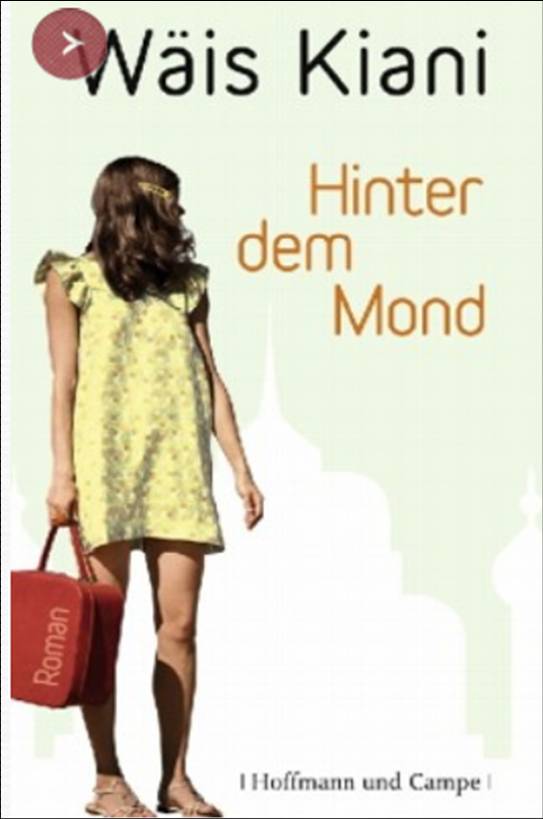Dear Ghazal,
Perhaps not completely unjustified, people suspect that I might suffer since 3 years from a sort of Persimania. Colleagues at work noticed this, and if they are Iranians they take it with some curiousity, whereas other foreigners and Germans find it highly suspicious.
Not to mention my family, Russian-Jewish and always convince that they should satisfy all my desire for exotic and multi-cultural contacts. But so it is, and I know my weak parts best, and have to admit that there is indeed a particular interest in everything that’s going on in Iran, its culture, social changes, politics, history.
No need to say that on my regular excursions through the literature novelties I instinctively grab everything written by Iranian authors or about the country. And thus, by chance I found this amazing novel that soon after the first pages showed its extreme potential to cure me from my Persimania. The book “Behind the Moon” by Wäis Kiani is the coming-of-age story of Layli, who was born and raised for the first six years in a northern-Germany small town. How her Iranian parents ended in this little glamorous environment, where Layli is the only kid from a non-German family, remains unclear. But she has no issue with this, and if the other kids call her Negro she immediately starts a fight with them.
Suddenly, in the 70s her parents decide to go back to Tehran, what she heavily objects. Only when they promise her a pet baby tiger in Iran, she declines. The adventureous journey in their family Volvo from Germany to Iran turns out to be a stepwise transition from the post-Hippie, Western European, Love-and-Rebellion society back through wild and uncivilized Anatolian landscapes and finally to a pre-modern, traditional, static environment with hundreds of family rules and old-fashioned way-of-life. But you already see, that in Tehran before the ’79 islamic revolution, there was also a liberal youth subculture, that tried to be recognized.
But Laily compares everything with Germany, and she makes hateful remarks about her conservative relatives, the smelly food, the old fashioned dresses which she refused to wear. She soon becomes member of a school kids gang, mainly of boys from German contract workers, bi-national families but also of some upper-class Iranians. They have fun driving pimped-up motorbikes, listening to western Rock-Music, reading underground books and driving the teachers and their own families nut.
When the 79 “Islamic Revolution” becomes high-jacked by the Mullahs and shows it real face, they simply call them “Aliens” or “Penguins”.
The book in no instance shows an arrogant view, because this is the typical attitute of coming-of-age teenagers. Laily would develop for sure the same conflicts and sloppy confrontation in any other country, being it Germany or France or the US. The book therefore simply shows that Iran is not a fairy-tale, and it can have the same degree of stupidity, absurdity as other societies. The book is really entertaining, it is witty, and written in a very fresh but at the same time nice enjoyable style. When it will be translated into Persian, I could imagine it becomes a best seller there, like “Tschick” by the Wolfgang Herrndorf.
And thanks to the book, I was able to learn some new phrases in Persian: Apart from “Marg bar Shah” and “Marg bar Amrika” (which already new), I know now that “Schejtoun” means “Devil”, “Lasch” means “Slut” and the most useful one (Fasten Sear-belts, dear reader) :
“Ma mirim be madresseh, ba Elefantenschuheh“ what obviously means “We go to school wearing Elefantenschuhe” (“Elephant boots”, a German quality brand)
Take Care, Badde
Michael